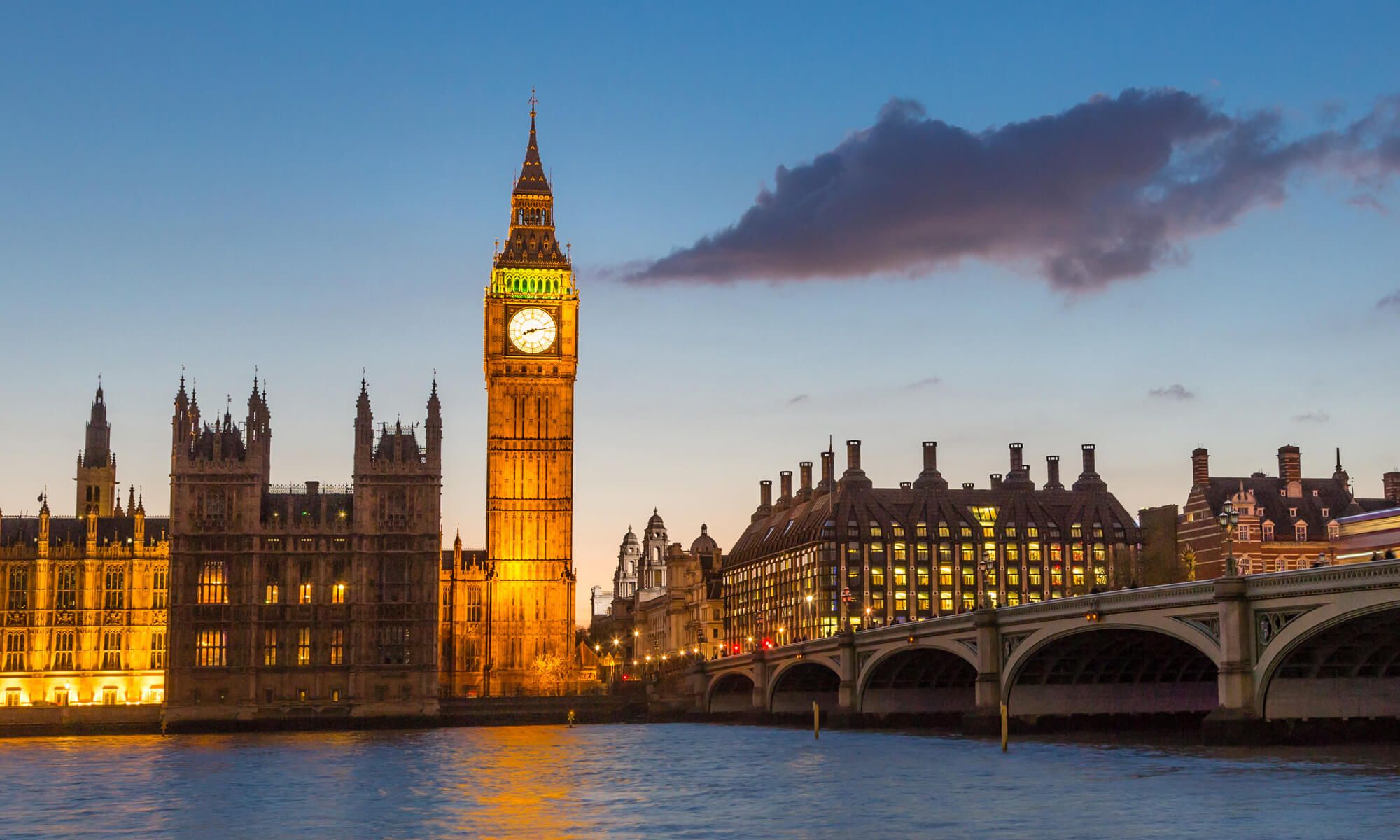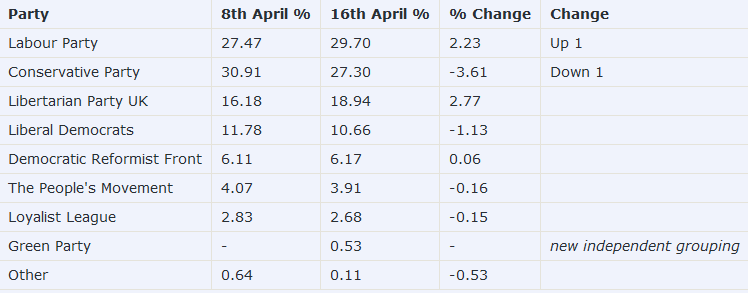A Week In Politics - Polling And A Show
This week in politics; Labour lead the polls, Coalitions are being negotiated, and the VoNC passed.

Last week we talked about possible coalition outcomes with the current seating in Parliament. This week, a catch up. A lot has happened very quickly, Olivia Jones reporting to bring you all the ups and downs.
As predicted, the Vote of No Confidence in the government passed by a stable majority. Relief could be felt through the Opposition benches as they succeeded in taking down the government. The Prime Minister ended up stepping down just before it, and the Con-Lib government is serving as interim until the Parliamentary parties form a new Government (possible governments covered in edition #1 of April 2020).
In the leadup to the VoNC, the Tories were running a heavy press campaign on their Leadership election to try and cushion the polling drop from the VoNC. As such, I'm not going to cover what others already have in detail. What you should know, however, if that as of a few hours ago model-willem has dropped out, making Yukub the new leader of the Conservative Party and our interim-Prime Minister until whichever next government forms. A considerably less moderate pick than the previous leader Mili, Yukub was endorsed by Willem when the latter gave the following statement to The Times
"I believe that Yukub will be a good man for the job who can start with a clean sheet to bring us back to the top of the polls."
~ model-willem, former Tory Leadership candidate
And on the subject of governments, that's been a roller coaster. Initially the Tories announced that they were considering staying in minority government while the LPUK and Lib Dems became an Official Opposition Coalition. This, understandably, please the Tories greatly as they would have an OO that was relatively loyal to them - and it sparked a great deal of chatter and political whatsapp groups were filled with various jokes about the apparently success of the right-wing.
As of recently, that was blown out of the water by the leaking of secret Coalition documents that detailed a Labour - Democratic Reformist - People's Movement government. This rose eyebrows in Westminster, with one Tory Minister saying that the parties involved were 'liars and hypocrites the lot of them' - which was in line with the majority of Tory and Liberal Democrat criticism that many People's Movement MP's said that they had no desire to be in government. However, the party is run democratically and not by hierarchy so it could be argued that even senior members do not accurately represent the will of the party in such statements.
The Coalition arrangement made between these parties is a relatively stable one, as predicted in my Game of Thrones and Seats article last week - but as was expected from a DRF government it has some controversial details. For one, it contains the expected policy to abolish the monarchy and replace it with an elected Presidency. But it also contains a far less expected element; the idea to reform the electoral system into a Norwegian-style Sainte-Laguë system. This is considerably controversial because it is heavily contested as to whether split-list regional/national MMP is or isn't better than this system.
It also calls for an elected upper-house, which is also a fairly contested topic. Some believe an un-elected house provides 'the voices of experts' to the political system, others argue that having non-elected officials involved in the legislative process is anti-democratic, others still argue that having an upper house at all is ineffective in nations like America and Australia and that the UK should just have a unicameral system centered around the House of Commons.
It would be impossible to argue that this isn't a set of controversial reforms. Labour will need to balance the wants of its coalition partners with its own interests and the interests of its members on this front, lest the Coalition be wrenched apart,
In a momentous bit of news greeted with cheering from Labour MPs on social media and a deafening silence from Tory ones, the latest polls are all showing that Labour are leading the Tories by a margin of roughly 2% - an event which may mark the first time in years that Labour have ever done better than their blue opponents.
The poll also showed LPUK gaining and the Liberal Democrats dropping marginally but not substantially. Parliamentary makeup based on our calculations would place a Labour-DRF-TPM Coalition at the same number if not more seats than a Blurple or Liberal Democrat Coalition.
This poll shows a very important thing out of the Labour Party; gains. They're moving up in the world, and it could spell great things for the party. But they'll need to work very very hard to keep it up because the Tories are bound to be hitting back on this one and not pulling punches. If Labour are to keep this high polling up until the distant future point where an election is called, they'll need to be able to stand the heat.

As we move into the government-forming period, parties are vying for the top spot and they can be cutthroat in the pursuit of power. L-DRF-TPM is absolutely able to beat Conservative numbers, but the question is will they be able to work their policies in Parliament? Their move to become such a Coalition has certainly upset the Parliamentary balance by removing the Liberal Democrats from the king-maker position entirely for now, but all eyes are on the presumptive soon-to-be Prime Minister ARichTeaBiscuit. Everyone wants to see if they'll succeed in holding together this war-cabinet coalition, and if it lasts.
Will the Leader of the Labour Party be the glue that holds a Coalition together? How will Yukub handle his party's likely move into Opposition with him at the helm? Will the Conservatives be able to make up lost ground, or will Labour leave them in the dust?
Well, who knows. The future is often uncertain at the best of times, and everyone knows how quickly things can change in a week in politics.
Olivia Jones is a journalist based out of central Birmingham. She started out writing freelance for various outlets, before settling down with The Independent. Her main articles are part of a weekly series named A Week In Politics published every Friday.

